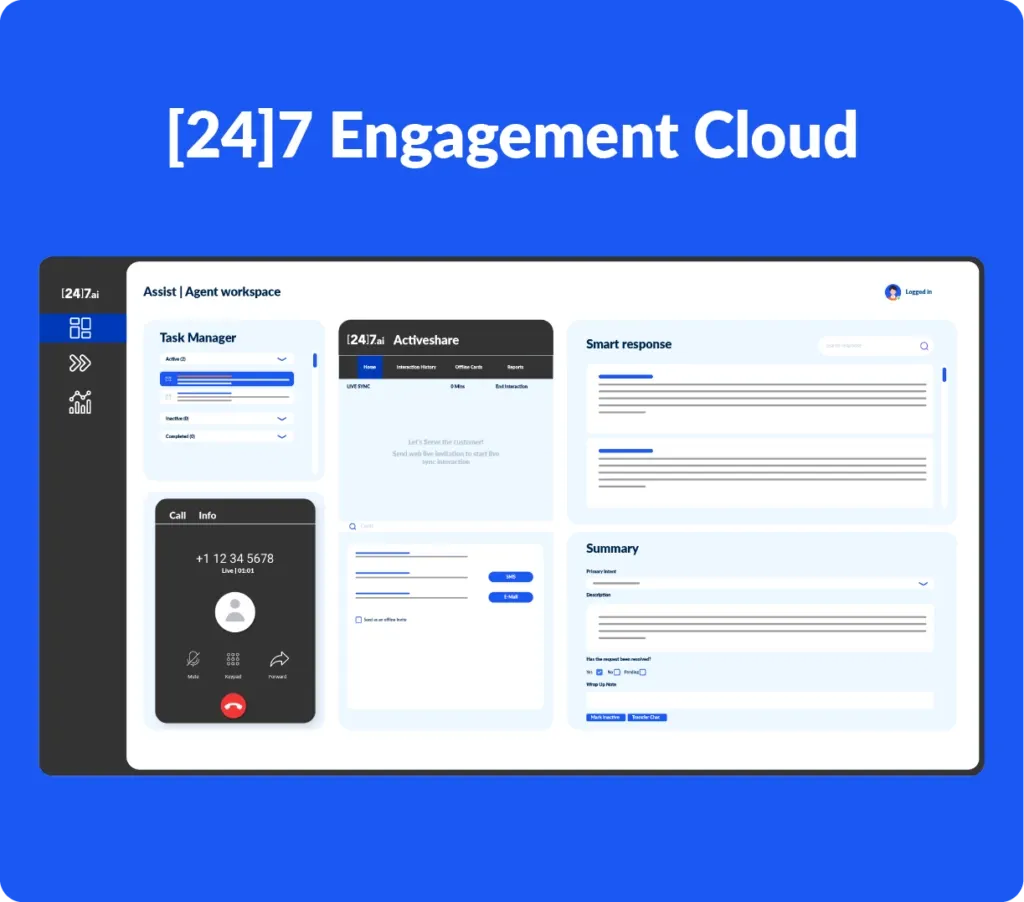For decades, telecom contact centers were seen as cost centers, places to resolve billing issues, fix network problems, or handle cancellations. Today, that view is shifting fast. With rising competition, shrinking margins, and customers demanding more value, telecom leaders are realizing that every interaction is more than a service touchpoint. It’s also a revenue opportunity.
The question is: how do you transform service conversations into sales opportunities without compromising the customer experience? The answer lies in blending human intelligence and AI-driven tools a combination that’s already changing how top telecom providers approach customer engagement.
Why Conversions Matter in Telecom CX
The telecom industry faces both intense competition and rising customer expectations. According to the American Customer Satisfaction Index, telecom ranks among the lowest industries for customer satisfaction in the US. At the same time, churn is costly: studies show that acquiring a new customer can cost 5x more than retaining an existing one.
That’s why forward-looking telecom leaders are shifting focus. Instead of treating contact centers as service hubs, they’re investing in models where customer care drives growth. For example:
- A call about a billing issue becomes a chance to recommend a new bundle.
- A chat about poor coverage opens the door to upselling a premium plan.
- A loyalty inquiry can be a cross-sell for add-on services like streaming or device protection.
If done right, these conversions not only drive revenue but also strengthen customer loyalty since the offers are personalized and timely.
The Role of AI: Faster, Smarter, More Personalized
AI is no longer just about deflecting calls. It’s about enabling better conversations. In telecom, where millions of interactions happen daily, AI-powered tools can:
- Predict intent by analyzing customer history and behaviors, so agents can anticipate needs before they’re voiced.
- Automate routine queries like balance checks, payment reminders, or SIM activations, freeing agents to focus on high-value interactions.
- Provide real-time recommendations to agents, suggesting upgrades, bundles, or offers tailored to that customer’s profile.
The Human Element: Empathy + Expertise
While AI provides speed and data, human intelligence delivers empathy, reassurance, and trust. In telecom, where frustrations can run high, like dropped calls or billing disputes, customers often want to feel heard before considering any upgrade or offer.
High-performing contact centers are training their agents to resolve issues, listen actively, build rapport, and frame solutions as value-added. It’s a cultural shift: agents are no longer “just handling calls” but acting as trusted advisors who balance customer satisfaction with business goals.
Best Practices for Telecom Leaders
To successfully move from service to sales, telecom CX leaders can adopt these practices:
- Integrate AI into agent workflows – Don’t replace agents; empower them. Use AI to surface next-best offers, customer insights, and contextual prompts.
- Upskill agents for consultative conversations – Train them to pivot from service to sales naturally, focusing on relevance rather than hard selling.
- Measure the right KPIs – Move beyond average handle time. Track conversion rates, customer satisfaction, and lifetime value.
- Foster a sales-positive culture – Celebrate when agents turn service calls into sales wins. Recognition motivates adoption.
- Keep customer trust at the center – Offers must feel like solutions, not sales pitches. The goal is to make the customer’s life easier.
The Path Forward
The telecom industry is at a turning point. With US telecom revenues expected to surpass $400 billion in 2025, the brands that win will see CX not as a cost center but as a growth engine. By combining AI’s precision with human agents’ empathy, telecom leaders can ensure that every conversation becomes a chance to strengthen relationships and boost conversions.
The telecom industry is at a turning point. With US telecom revenues expected to surpass $400 billion in 2025, the brands that win will see CX not as a cost center but as a growth engine. By combining AI’s precision with human agents’ empathy, telecom leaders can ensure that every conversation becomes a chance to strengthen relationships and boost conversions.







